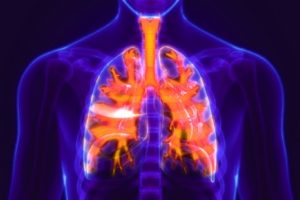Pleural Effusions Specimens
Bay Biosciences provides high quality, clinical grade bio-samples, cryogenically preserved tumor tissue, FFPE blocks, sera (serum), plasma, peripheral blood mononuclear cells (PBMC), pleural effusions, biofluid specimens from patients diagnosed with mesothelioma.
The sera (serum), plasma and peripheral blood mononuclear cells (PBMC) biofluid samples are processed from patient’s peripheral whole-blood using customized collection and processing protocols. The mesothelioma bio-specimens are collected from unique patients suffering from mesothelioma and are provided to a valued pharmaceutical customer for translational research, genomics, proteomics and biomarker research, drug discovery and development.

Pleural Effusions Overview
Pleural effusions are a symptom commonly associated with lung cancers. Over 1.5 million people are diagnosed with pleural effusion each year in the United States. Pleural effusions are a common symptom that develops in over 90% of pleural mesothelioma patients. They’re one of the primary contributors to pleural mesothelioma symptoms like shortness of breath and tightness in the chest. As fluid builds up in between the pleural linings, it restricts lung movement, which seriously disables the affected patients.
Pleural effusions, or “water on the lungs”, can be treated with palliative surgeries that drain fluid from the chest. Draining excess fluid buildup relieves chest pressure, allowing the patient to breathe more easily. Research has shown that virtually every patient with pleural effusions who underwent fluid drainage experienced a decrease in effusion symptoms.
Causes of Pleural Effusions
Pleural effusions are caused by an excess buildup of fluid in the protective lining that covers the lungs and chest (the pleura). In a healthy person, there is always a small amount of fluid in the pleura which allows for lubrication and movement. The normal amount of pleural fluid allows you to breathe comfortably. The body is good at regulating this fluid and will evacuate excess fluid on its own.
In patients who develop pleural mesothelioma, tumors accumulate in the pleura, which causes inflammation and constriction of the lining. Added pressure due to inflammation causes pleural blood vessels to leak fluid, which leads to an excess of liquid in the pleura. Pleural effusions are common in pleural mesothelioma patients. However, other asbestos-related illnesses can cause pleural effusions as well. Lung cancer and asbestosis caused by asbestos exposure can also create pleural effusions.

Symptoms of Pleural Effusions
Pleural effusions on their own are considered a sign of pleural mesothelioma, and they are responsible for many pleural mesothelioma symptoms. Researchers consider pleural effusions to be a strong early indicator of mesothelioma. That’s why reporting pleural effusion symptoms, along with the history of asbestos exposure, could lead to a life-saving early diagnosis of pleural mesothelioma.
Following are the common Pleural Effusion signs and symptoms:
- Dry cough
- Quickened breathing
- Shortness of breath
- Chest Pain
- Sharp pain when coughing or taking deep breaths
- Not being able to breathe properly when lying down
- General feeling of being unwell (malaise)
- Fever
- Fatigue
As pleural effusions worsen, the shortness of breath may cause panic in the affected person. Some patients report feeling as though they are being suffocated because the constriction has become so intense. Other patients report feeling like they are drowning as the fluid accumulates. Other complications from pleural effusions can include infection. Empyema, when pleural fluid becomes infected can be fatal in particularly unhealthy patients. If mesothelioma has made its way into the lymphatic system, it will have compromised the immune system, making it difficult to combat infection. Untreated pleural effusions can also cause the lung to collapse.
Some patients may have pleural effusions and never display any symptoms, making it a difficult condition to detect. Sometimes with pleural mesothelioma patients, the symptoms of pleural effusions go unfelt for so long that the cancer isn’t diagnosed until it’s in advanced stages.
Pleural Effusions Diagnostics
Chest X-rays can show doctors whether there is a concerning level of fluid buildup in the chest. However, fluid buildup can indicate other conditions like pneumonia or congestive heart failure. It’s vital to report any known history of asbestos exposure to the doctor. If X-rays confirm there is excess fluid, the next step is to take a sample of the fluid for testing. Doctors use a procedure called a thoracentesis, whereby they insert a needle or thin tube into space where the fluid has accumulated. Pleural effusion fluid sample is withdrawn and sent to a medical lab for further testing to determine if the patient have mesothelioma.
Pleural effusion fluid sample is processed and further clinical, pathological and genetic analysis are performed to analyze the sample fluid to determine if the effusion has been caused by cancer. Lab results can show if the effusion is caused by cancer by the level of protein the fluid contains. Protein-rich pleural fluid is a strong indicator of cancer. In these cases, further diagnostic steps must be taken to determine if the cause is mesothelioma or another type of cancer such as lung, breast or lymphoma.

Detailed clinical data, computerized tomography CT, MRI, PET scan reports, pleural effusion test, elevated biomarker levels, genetic and metabolic information, lung tumor tissue biopsy, pathology annotations associated with the malignant mesothelioma patient’s specimens is provided to a valued customer for research, development and drug discovery. The malignant mesothelioma sera (serum), plasma and PBMC biofluid samples are processed from patients peripheral whole-blood using customized collection and processing protocols provided by the researcher.
Bay Biosciences is a global leader in providing researchers with high quality, clinical grade, fully characterized human tissue samples, bio-specimens and human bio-fluid collections from cancer (tumor) tissue, cancer sera (serum), cancer plasma, cancer PBMC and human tissue samples from most other therapeutic areas and diseases.
Bay Biosciences maintains and manages it’s own bio-repository, human tissue bank (biobank) consisting of thousands of diseased samples (specimens) and from normal healthy donors available in all formats and types. Our biobank procures and stores fully consented, deidentified and institutional review boards (IRB) approved human tissue samples and matched controls.
All our human human tissue collections, human specimens and human bio-fluids are provided with detailed samples associated patient’s clinical data. This critical patient’s clinical data includes information relating to their past and current disease, treatment history, lifestyle choices, biomarkers and genetic information. Patient’s data is extremely valuable for researchers and is used to help identify new effective treatments (drug discovery & development) in oncology, other therapeutic areas and diseases. This clinical information is critical to demonstrate their impact, monitor the safety of medicines, testing & diagnostics, and generate new knowledge about the causes of disease and illness.
Bay Biosciences banks wide variety of human tissue samples and biological samples including cryogenically preserved -80°C, fresh, fresh frozen tissue samples, tumor tissue samples, FFPE’s, tissue slides, with matching human bio-fluids, whole blood and blood derived products such as serum, plasma and PBMC’s.
Bay Biosciences is a global leader in collecting and providing human tissue samples according to the researchers specified requirements and customized, tailor made collection protocols. Please contact us anytime to discuss your special research projects and customized human tissue sample requirements.
Bay Biosciences provides human tissue samples (human specimens) from diseased and normal healthy donors; including peripheral whole-blood, amniotic fluid, bronchoalveolar lavage fluid (BAL), sputum, pleural effusion, cerebrospinal fluid (CSF), serum (sera), plasma, peripheral blood mononuclear cells (PBMC’s), saliva, Buffy coat, urine, stool samples, aqueous humor, vitreous humor, kidney stones, renal calculi, nephrolithiasis, urolithiasis and other bodily fluids from most diseases including cancer. We can also procure most human bio-specimens and can do special collections and requests of human samples that are difficult to find. All our human tissue samples are procured through IRB approved clinical protocols and procedures.
In addition to the standard processing protocols Bay Biosciences can also provide human plasma, serum, PBMC bio-fluid samples using custom processing protocols, you can buy donor specific sample collections in higher volumes and specified sample aliquoting from us.
Bay Biosciences also provides human samples from normal healthy donors, volunteers, for controls and clinical research, contact us Now.
日本のお客様は、ベイバイオサイエンスジャパンBay Biosciences Japan またはhttp://baybiosciences-jp.com/contact/までご連絡ください。


